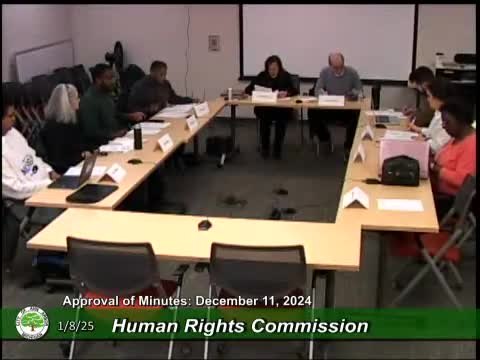Article not found
This article is no longer available. But don't worry—we've gathered other articles that discuss the same topic.

Ann Arbor Human Rights Commission reappoints Leslie Stanbaugh as chair, Judah Garber as vice chair

HRC seeks student research partners to study housing costs, food access, transportation and guaranteed income

HRC presses city on contractor outreach and non-discrimination compliance

Human Rights Commission logs new complaints, considers guidance and outreach on "right to sit" claims

